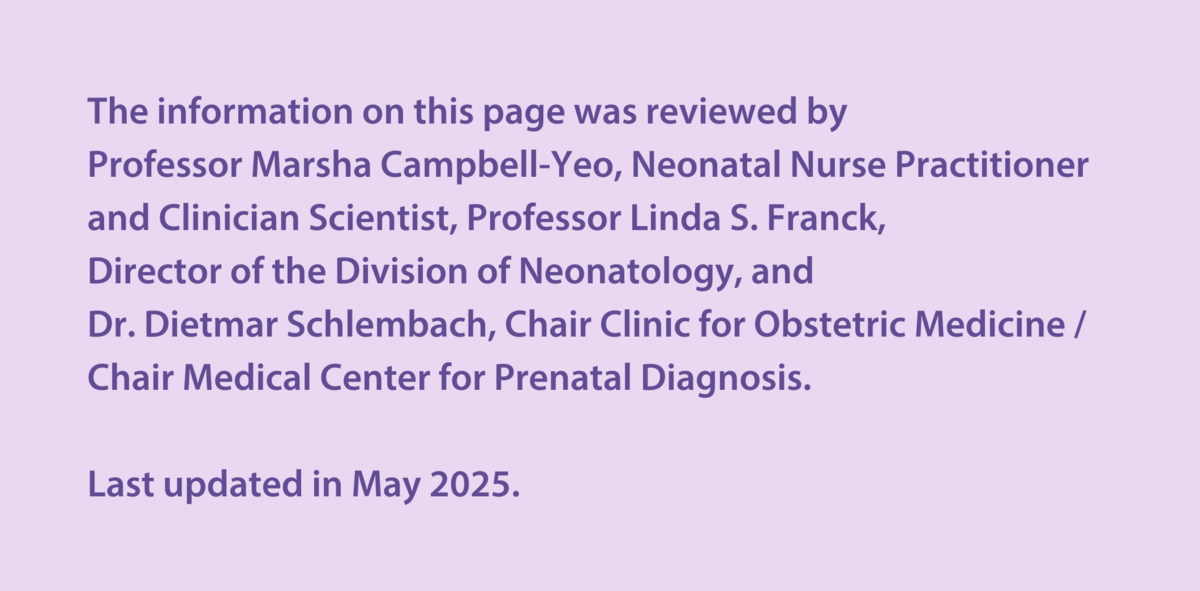Preterm or sick babies have a higher chance of having conditions that may lower their oxygen levels compared to healthy, full-term infants. Because of this, oxygen therapy⍰ is often needed.
Immediate support after birth may be lifesaving in the case of a baby that has had a significant or prolonged reduction of oxygen during birth, known as birth asphyxia⍰, and associated with possible brain injury.
If your baby has trouble breathing at birth, neonatal resuscitation is crucial. Despite how distressing this all might sound; it is good to remember that advances in the field of resuscitation procedures in the past decades have greatly reduced neonatal deaths.
Other conditions that may require breathing support or additional oxygen include difficulty breathing at birth, lung issues such as respiratory distress syndrome (RDS) – a condition often seen in preterm babies caused by a lack of natural lung surfactant⍰ – and other temporary breathing problems.
Newborns who are sick due to being born too early, with infections, seizures⍰, or low blood sugar⍰ may also have breathing problems, known as apnea⍰, which can lead to low oxygen levels and slow heart rates, making it harder for oxygen to reach their tissues.

